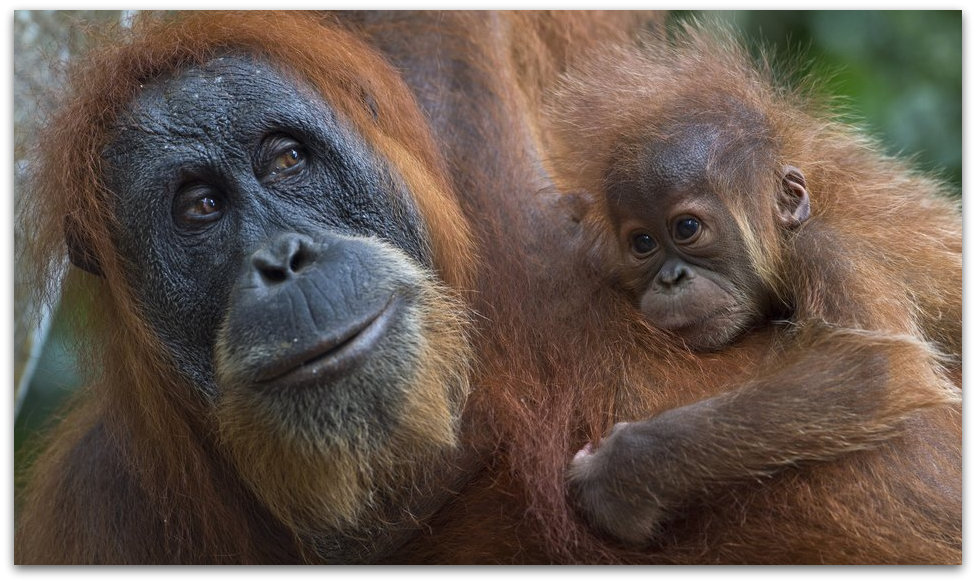"Over the past 20 years, tens of thousands of wild orangutans
have been killed, maimed or orphaned as a direct result of the palm oil industry."
~ Writer, Dominique Mosbergen for Huffingtonpost
It was late evening. The skies were dark and dogs were howling. Into the BOS Nyaru Menteng Orangutan Rescue Center on the island of Borneo rushed a rescue worker cradling a tiny bundle in his arms.
He handed over the precious package to the manager on duty. Inside, with a face as small as a mouse’s, was a 3-month-old orangutan.
Those who were there that day say there are two things they remember most about their first meeting with the baby ape: her intelligent eyes, big and bright; and her fragile left arm -- half of which was conspicuously missing.
The baby’s hand had been hacked off.
“Infant orangutans, who ride on their mothers’ stomachs by holding onto their long hair, have incredibly strong grips. They do not let go,” Richard Zimmerman, whose organizationOrangutan Outreach helps facilitate the rescue and rehabilitation of wild orangutans, told The Huffington Post. “The baby’s hand was chopped off -- most likely to pry her off her mother.”
Rescuers believe that the infant and her mom had been driven out of their forest home when it was destroyed to make way for a palm oil plantation. Starving, disoriented and too weak to climb, the mother ape was likely walking on the forest floor in search of food when she encountered the humans who would kill her and maim her child.
Rescuers named the baby orangutan “Kesi,” Swahili for “child born in difficult times.” That name is apt for many a wild orangutan living today. READ FULL ARTICLE


 RSS Feed
RSS Feed

